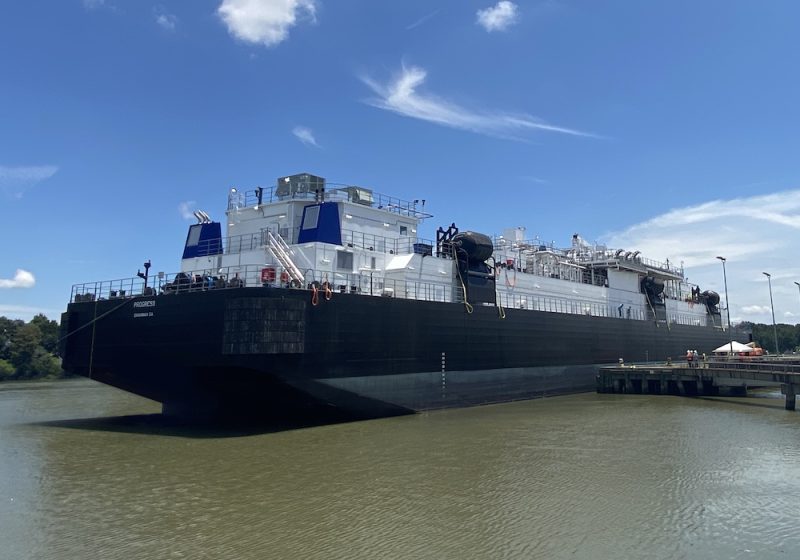Crowley Accepts Delivery of Largest US LNG Bunker Barge, Progress
Crowley has taken delivery of the LNG bunker barge Progress, the largest vessel of its kind that complies with the U.S. Jones Act. The construction of this groundbreaking vessel was completed at Fincantieri Bay Shipbuilding in Sturgeon Bay, Wisconsin.
The Progress is set to enhance cleaner energy access for ship operators at the Port of Savannah, Georgia, following its final commissioning this month. In a strategic move to promote the use of liquefied natural gas (LNG) as a marine fuel, Shell NA LNG, LLC (Shell) has entered into a long-term agreement with Crowley to operate the barge, providing an additional fueling location for LNG-powered ships.
“The Progress LNG bunker barge sets a new standard for quality and capability to serve the energy needs of the shipping industry,” said James C. Fowler, Senior Vice President and General Manager of Crowley Shipping. “LNG offers a safe and reliable solution for ocean carriers that advances the transition to lower emissions. We congratulate the people whose dedication and hard work in designing and building this world-class vessel allowed us to reach this milestone for the U.S. industry and our customers.”
The 416-foot-long barge, designed by Crowley’s engineering services group, boasts a capacity of 12,000 m³ (3.17 million gallons) and incorporates a transformative design that ensures efficient and reliable LNG supply to fuel ships. The Progress is equipped with advanced technologies developed by Shell and Crowley’s engineering services group, enabling flexible LNG delivery to various types of LNG containment systems.
“Fincantieri Bay Shipbuilding continues to be an industry leader in building LNG bunkering barges. We take tremendous pride in seeing another FBS-built vessel leave Sturgeon Bay to its new operational home port. I am proud of the work of our entire Fincantieri Bay Shipbuilding team,” said Jan Allman, Vice President and General Manager of Fincantieri Bay Shipbuilding.
LNG is currently the lowest carbon fuel available for shipping at scale, reducing greenhouse gas (GHG) emissions by up to 23% (well-to-wake) compared to very/ultra-low sulfur fuel oil. The introduction of the Progress LNG bunker barge marks a significant advancement in promoting sustainable shipping practices and reducing the maritime industry’s carbon footprint.














